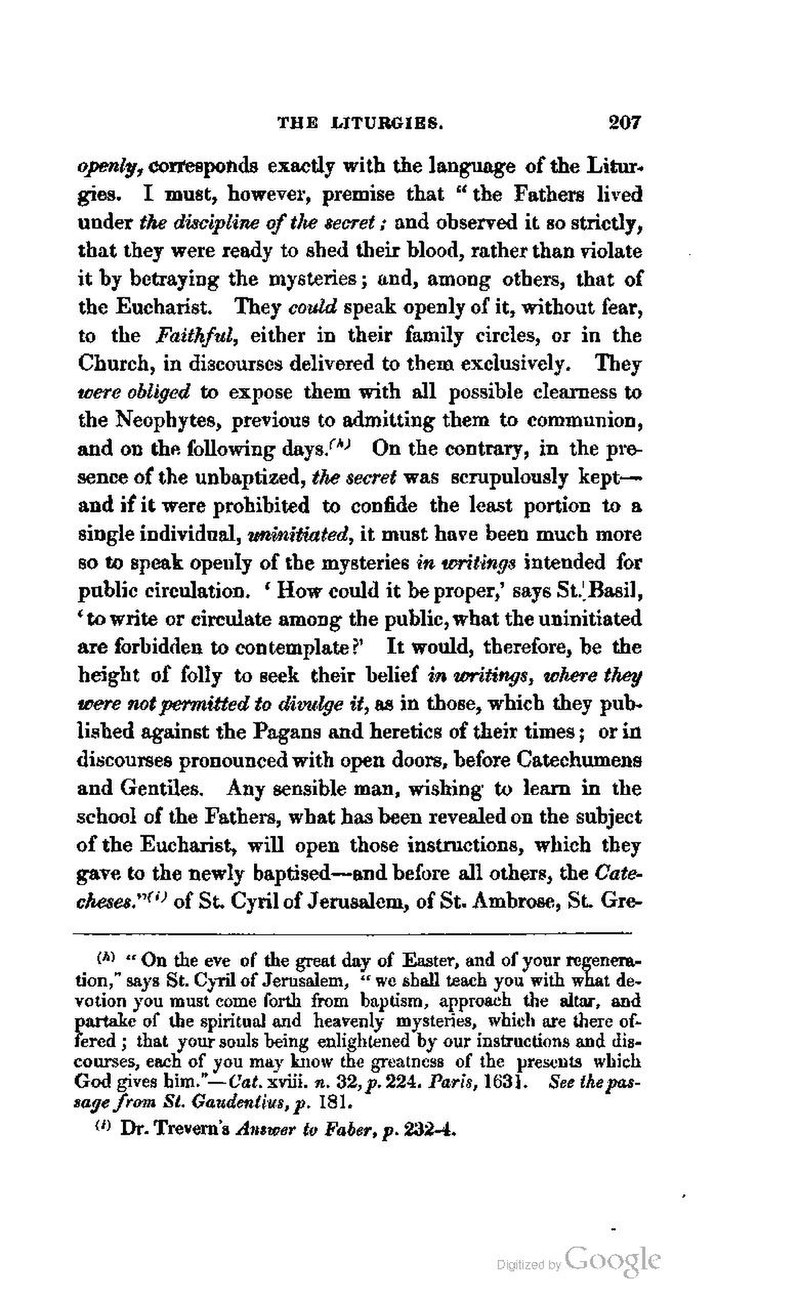openly, corresponds exactly with the language of the Liturgies. I must, however, premise that “the Fathers lived under the discipline of the secret ; and observed it so strictly, that they were ready to shed their blood, rather than violate it by betraying the mysteries; and, among others, that of the Eucharist. They could speak openly of it, without fear, to the Faithful, either in their family circles, or in the Church, in discourses delivered to them exclusively. They were obliged to expose them with all possible clearness to the Neophytes, previous to admitting them to communion, and on the following days.[1] On the contrary, in the presence of the unbaptized, the secret was scrupulously kept and if it were prohibited to confide the least portion to a single individual, uninitiated, it must have been much more so to speak openly of the mysteries in writings intended for public circulation. “How could it be proper,' says St. Basil, 'to write or circulate among the public, what the uninitiated are forbidden to contemplate?' It would, therefore, be the height of folly to seek their belief in writings, where they were not permitted to divulge it, as in those, which they published against the Pagans and heretics of their times; or in discourses pronounced with open doors, before Catechumens and Gentiles. Any sensible man, wishing to learn in the school of the Fathers, what has been revealed on the subject of the Eucharist, will open those instructions, which they gave to the newly baptised-and before all others, the Catecheses.” of St. Cyril of Jerusalem, of St. Ambrose, St. Gre-
- ↑ “On the eve of the great day of Easter, and of your regeneration,” says St. Cyril of Jerusalem, shall teach you with what devotion you must come forth from baptism, approach the altar, and partake of the spiritual and heavenly mysteries, which are there offered ; that your souls being enlightened by our instructions and discourses, each of you may know the greatness of the presents which God gives him.”—Cat. xviii. n. 32, p. 224. Paris, 1631. See the passage from St. Gaudentius, p. 181. Dr. Trevern's Answer to Faber, p.
